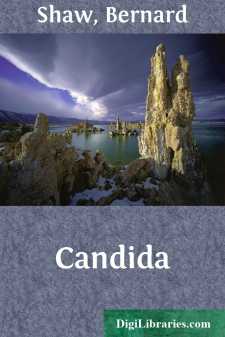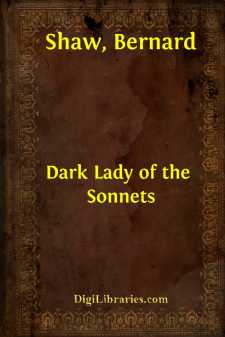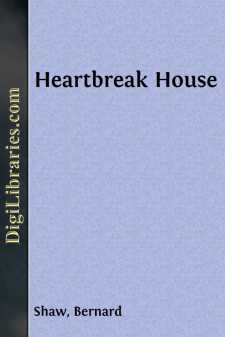Categories
- Antiques & Collectibles 13
- Architecture 36
- Art 48
- Bibles 22
- Biography & Autobiography 813
- Body, Mind & Spirit 142
- Business & Economics 28
- Children's Books 17
- Children's Fiction 14
- Computers 4
- Cooking 94
- Crafts & Hobbies 4
- Drama 346
- Education 46
- Family & Relationships 57
- Fiction 11829
- Games 19
- Gardening 17
- Health & Fitness 34
- History 1377
- House & Home 1
- Humor 147
- Juvenile Fiction 1873
- Juvenile Nonfiction 202
- Language Arts & Disciplines 88
- Law 16
- Literary Collections 686
- Literary Criticism 179
- Mathematics 13
- Medical 41
- Music 40
- Nature 179
- Non-Classifiable 1768
- Performing Arts 7
- Periodicals 1453
- Philosophy 64
- Photography 2
- Poetry 896
- Political Science 203
- Psychology 42
- Reference 154
- Religion 513
- Science 126
- Self-Help 84
- Social Science 81
- Sports & Recreation 34
- Study Aids 3
- Technology & Engineering 59
- Transportation 23
- Travel 463
- True Crime 29
Sort by:
by:
Bernard Shaw
ACT I A fine October morning in the north east suburbs of London, a vast district many miles away from the London of Mayfair and St. James's, much less known there than the Paris of the Rue de Rivoli and the Champs Elysees, and much less narrow, squalid, fetid and airless in its slums; strong in comfortable, prosperous middle class life; wide-streeted, myriad-populated; well-served with ugly iron...
more...
by:
Bernard Shaw
The twelfth of May, 1796, in north Italy, at Tavazzano, on the road from Lodi to Milan. The afternoon sun is blazing serenely over the plains of Lombardy, treating the Alps with respect and the anthills with indulgence, not incommoded by the basking of the swine and oxen in the villages nor hurt by its cool reception in the churches, but fiercely disdainful of two hordes of mischievous insects which...
more...
by:
Bernard Shaw
BERNARD SHAW N.B. The Euripidean verses in the second act of Major Barbara are not by me, or even directly by Euripides. They are by Professor Gilbert Murray, whose English version of The Baccha; came into our dramatic literature with all the impulsive power of an original work shortly before Major Barbara was begun. The play, indeed, stands indebted to him in more ways than one. G. B. S. Before...
more...
by:
Bernard Shaw
How the Play came to be Written I had better explain why, in this little piece d'occasion, written for a performance in aid of the funds of the project for establishing a National Theatre as a memorial to Shakespear, I have identified the Dark Lady with Mistress Mary Fitton. First, let me say that I do not contend that the Dark Lady was Mary Fitton, because when the case in Mary's favor (or...
more...
by:
Bernard Shaw
THE RHINE GOLD Let me assume for a moment that you are a young and good-looking woman. Try to imagine yourself in that character at Klondyke five years ago. The place is teeming with gold. If you are content to leave the gold alone, as the wise leave flowers without plucking them, enjoying with perfect naivete its color and glitter and preciousness, no human being will ever be the worse for your...
more...
by:
Bernard Shaw
ACT I At the most wretched hour between a black night and a wintry morning in the year 1777, Mrs. Dudgeon, of New Hampshire, is sitting up in the kitchen and general dwelling room of her farm house on the outskirts of the town of Websterbridge. She is not a prepossessing woman. No woman looks her best after sitting up all night; and Mrs. Dudgeon's face, even at its best, is grimly trenched by the...
more...
by:
Bernard Shaw
INTRODUCTION To the irreverent—and which of us will claim entire exemption from that comfortable classification?—there is something very amusing in the attitude of the orthodox criticism toward Bernard Shaw. He so obviously disregards all the canons and unities and other things which every well-bred dramatist is bound to respect that his work is really unworthy of serious criticism (orthodox)....
more...
by:
Bernard Shaw
Where Heartbreak House Stands Heartbreak House is not merely the name of the play which follows this preface. It is cultured, leisured Europe before the war. When the play was begun not a shot had been fired; and only the professional diplomatists and the very few amateurs whose hobby is foreign policy even knew that the guns were loaded. A Russian playwright, Tchekov, had produced four fascinating...
more...









